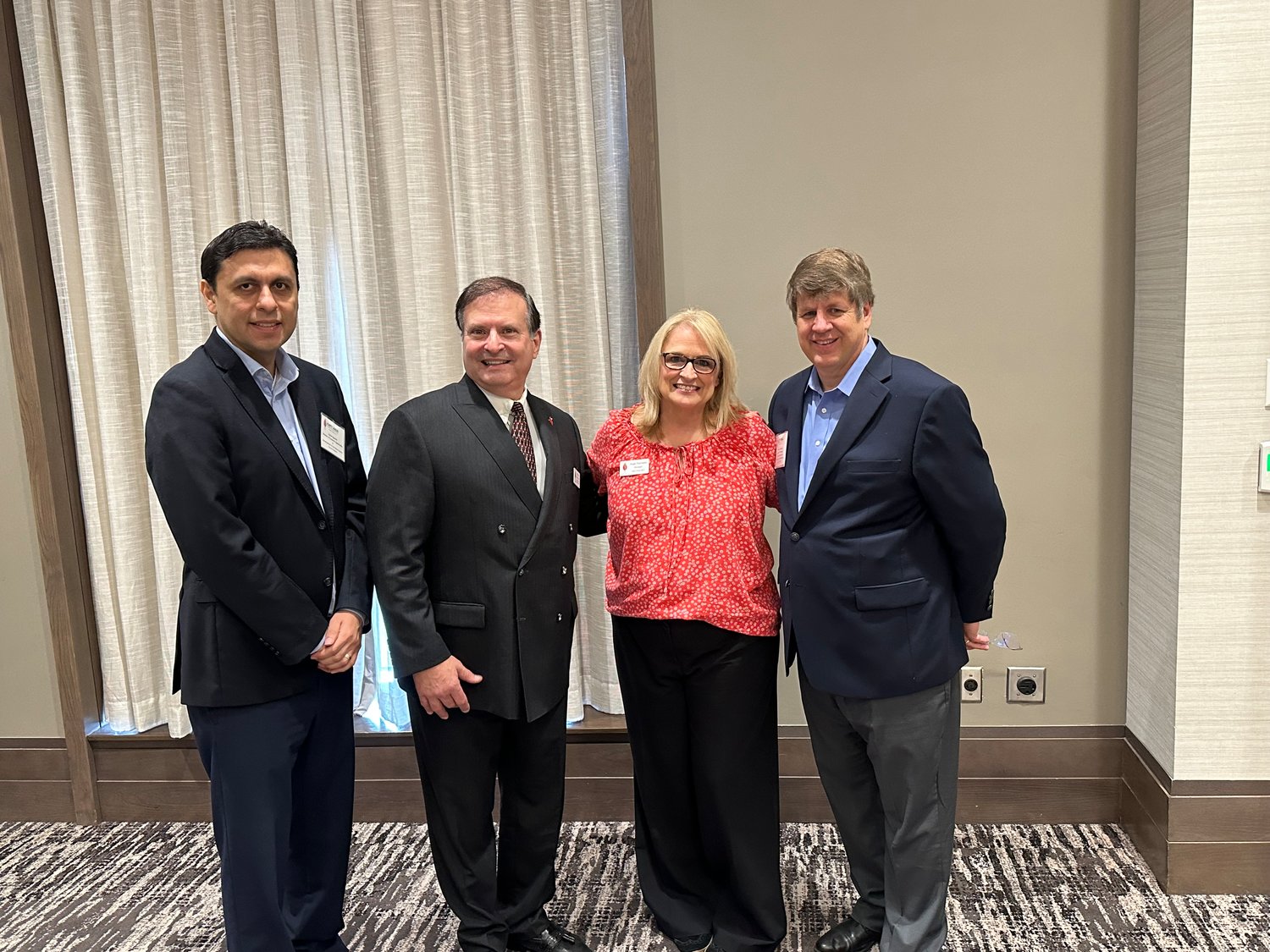Houston-area economy remains strong, despite recession concerns
The Houston-area economy continues to perform better than the national economy, but concerns remain about a possible recession in 2023, a Greater Houston Partnership official said Tuesday.
This item is available in full to subscribers.
Attention subscribers
To continue reading, you will need to either log in to your subscriber account, below, or purchase a new subscription.
Please log in to continue |
Houston-area economy remains strong, despite recession concerns
The Houston-area economy continues to perform better than the national economy, but concerns remain about a possible recession in 2023, a Greater Houston Partnership official said Tuesday.
Patrick Jankowski is the partnership’s senior vice president of research. He and Carlos Guzman, Fort Bend County director of economic opportunity and development, spoke at a Katy Area Economic Development Council meeting at the Embassy Suites, 16435 Katy Fwy.
The recession concerns come as the pandemic recedes into the past. Jankowski said the Houston area lost about 359,400 jobs between March-April 2020, when the pandemic took hold of the global economy. But from May 2020-November 2022, 504,200 jobs have been created locally, for a 144,800 surplus, Jankowski said.
Yet inflation continues to be a concern, and Jankowski said cited some grocery store examples to illustrate. In December 2019, he said, a loaf of bread cost $1.36. But by December 2022, that price had raised by $0.51, or 37.4%, to $1.87. A gallon of whole milk, he said, costs $4.18, a $1.02, or 32.1% increase, over the same period.
Jankowski said a pound of lean ground beef costs $6.39, an $0.87, or 15.7%, increase. He said a one-pound bag of potato chips costs $6.28, a $1.75, or 38.7%, increase.
Yet despite the higher prices, Jankowski said the cure would be more higher prices. In this way, he said, the supply-and-demand cycle would balance out and the inflation rate would fall.
Jankowski cited a Wall Street Journal survey, conducted last October, in which 63% of those surveyed believed that a recession was imminent. Another survey, this one of National Association for Business Economics, suggested that 62% of those surveyed thought such the recession would happen in the first quarter of this year, he said.
Yet such predictions don’t necessarily come true. For example, Jankowski said, general expectations of an easy Russian victory in its invasion of Ukraine have not happened. Predictions of a Republican sweep victory in the November 2022 elections did not happen. Predictions of Bitcoin overtaking the dollar did not happen, either.
A recession, were one to occur, would have one of three outcomes, Jankowski said. The recession could be mild, or a “near miss,” or it could be deep and protracted.
Some executives seem to feel a mild recession is forthcoming. Jankowski cited a Conference Board survey of 136 CEOs that was conducted during the last quarter of 2022. He said according to the survey, 44% of the CEOs said they expect to expand their workforce over the next 12 months. This is a 6% decrease from 50% from 2021.
On capital spending, Jankowski said, the same survey said that 86% of CEOs expect their capital budgets to increase or remain the same over the next year. This is a 4% increase from 2021, he said.
Jankowski said Houston’s economy remains in good shape. He cited Texas Workforce Commission statistics that said initial claims for unemployment benefits are at the lowest level since 2021. The Purchasing Managers Index, as tracked by the Institute for Supply Management-Houston, is 53.8, which is above the target figure of 50, he said.
The employment forecast is also expected to be strong, he said. According to Greater Houston Partnership research, even with a mild recession, the Houston area can expect to grow by 60,000 jobs. A “near miss” situation is expected to lead to about 80,000 new jobs. A deep recession is expected to lead to about 30,000 jobs, he said.
Keywords
Katy Area EDC, Greater Houston Partnership






